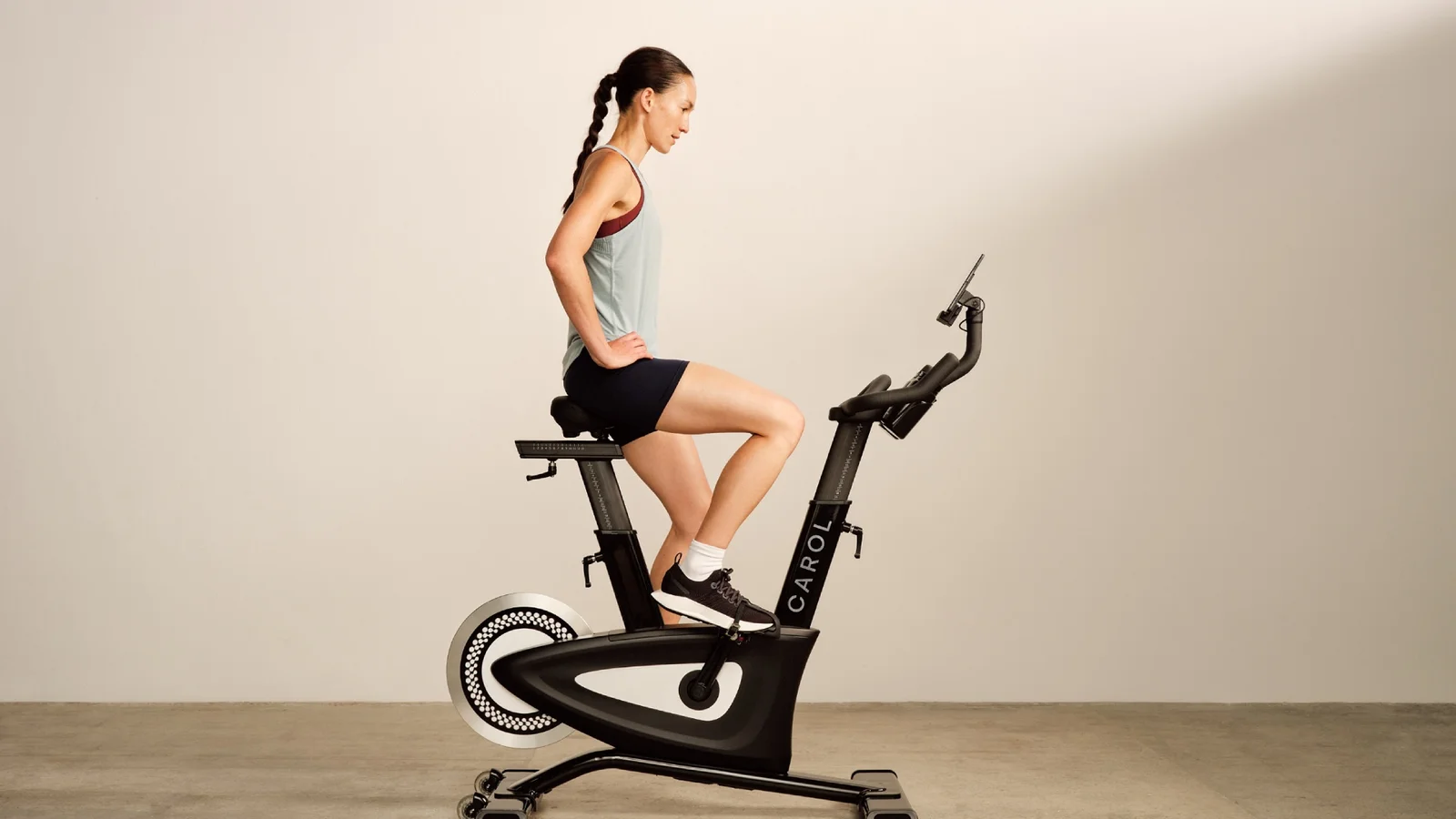1. Increased weight loss
If your goal is to lose fat, a morning workout routine may be more efficient. A 2015 study published in EBio Medicine compared 3 groups of men who worked out before breakfast, after lunch, and after dinner. Early exercise caused increased 24-hour fat oxidation, which led to increased fat burn.
A 2022 study compared the effect of morning vs. evening exercise on men and women. Morning exercise better reduced abdominal fat and blood pressure while evening exercise enhanced muscular performance in the women cohort. If losing fat is more important for you than building muscle mass, your training will be much more efficient in the early hours.
Early aerobic training may also increase endurance compared to later hours, at least for men. The authors of a 2013 study observed that the endurance capacity of men during exhaustive cycling exercise at 65% peak VO2max was significantly greater in the morning than in the evening.
Finally, morning exercise may be a great way to regulate appetite. Morning workouts reduce ghrelin, the hunger hormone, and increase satiety hormones such as peptide YY and glucagon-like peptide-1. You may notice that you don’t feel hungry after morning training even if you did it on an empty stomach.
This was found during a 2012 study of 35 women walking on a treadmill for 45 minutes in the morning. When the researchers measured the women’s brain waves afterward as they were shown photos of food, their hunger response was significantly lower. In addition, morning exercise also increased their physical activity during the next 24 hours.

If losing fat is more important for you than building muscle mass, your training will be much more efficient in the early hours.
2. Stable cortisol and blood sugar
The positive impact of morning workouts is not limited to appetite hormones; working out in the morning also stabilizes your level of cortisol, often known as the “stress hormone.”
As a hormone that keeps you awake and alert, cortisol causes problems only when it reaches abnormally high levels. Studies show that low-intensity exercise leads to a reduction in circulating cortisol levels—whereas, conversely, medium- to high-intensity exercise results in increased cortisol. Stabilizing cortisol helps you lose weight, minimize food cravings, feel less stressed, and improve your sleep quality. Typically, cortisol reaches its peak level in the morning, around 8 a.m., depending on your circadian rhythm, and drops in the evening before you go to sleep. That’s why scheduling your workout for the early morning helps keep your cortisol at a healthy level.
Cortisol also controls blood sugar; a natural rise in blood glucose occurs around the same time as cortisol, between about 4–8 a.m. Morning exercise lowers your blood sugar by simultaneously stabilizing your cortisol level and using the glycogen (stored glucose) in your muscles for energy. As a result, the risk of developing diabetes is decreased.
People already suffering from diabetes may have an opposite problem—hypoglycemia—which develops when blood sugar drops too low. During a 2015 study, researchers found that morning exercise lowers that risk. Compared to evening workouts, morning workouts lowered the risk of hypoglycemia after activity and improved metabolic control the next day.
3. Improved cognitive function and mental health
Working out in the morning can have a significant impact on your cognitive function, mental health, and overall mood. Physical activity enhances release of endorphins, dopamine, and adrenaline to make you feel happy, confident, capable, less anxious, less stressed, and even less physical pain. Multiple studies show that adding exercise to your morning routine can significantly improve your wellbeing. If you want to boost the effect of morning exercise, you can add a short meditation session to your practice for improved focus, mindfulness, and mental health.
A 2019 study of older adults showed that even gentle morning workouts, such as 30-minute morning walks, improved their working memory and executive function, which in turn led to enhanced attention, visual learning, and decision-making.
A 2019 study focused on the effect of time-of-day-exercise while treating depression among former elite male athletes. It has been shown that exercise in the morning not only activates the metabolic and physiological activities but also boosts energy, leading to improved mental activity. Furthermore, a morning sweat may also lead to better mental health and productivity throughout the day, while evening exercise can have a more relaxing effect.
When observing 24 young male non-athletes participating in an 8-week morning exercise program, researchers confirmed that the secretion of beta-endorphins during exercise reduced any symptoms of depression and improved the mood of all participants. Positive psychological changes included improved mental health impact and greater confidence.
Finally, an early workout results in better sleep needed for your brain to rest and recharge. A study published in Vascular Health and Risk Management has shown that aerobic exercise leads to more time spent in deep sleep and fewer nighttime awakenings. Subjects who engaged in aerobic exercise also fell asleep more quickly.
CAROL Bike: A perfect morning workout
Starting your day with one of CAROL Bike’s short Reduced Exertion HIIT (REHIT) workouts is the perfect way to activate and energize your body. With workouts from just 5 minutes, they’re short, effective, and easy to fit into your morning.
REHIT is scientifically-proven to be the shortest, and most effective way to exercise by creating the most potent training stimulus with just 2×20-second sprints. CAROL’s AI-personalization and Instant Resistance help you push to your limits during the sprints. Like in a ‘fight or flight’ situation, your muscles are forced to mobilize about 25-30% of muscular glycogen, your emergency energy reserve, telling your body it must get fitter and stronger. This helps you attain double the health and fitness benefits of regular exercise—in just 10% of the time.

Get double the health and fitness benefits of regular exercise—in just 10% of the time.
Should you have breakfast before your morning workout?
There are different arguments regarding whether you should have breakfast before your early workouts.
Some people believe that training in a fasted state burns more fat however, research shows that training on an empty stomach doesn’t significantly impact results—although it may still have an indirect effect on your weight loss. As mentioned earlier, when you have a meal after training, you are more likely to eat less, make healthier food choices, and stay full for a longer period of time—which will lead to a lower calorie intake in total.
This practice isn’t suitable for everyone. If you have a tendency towards diabetes or unstable blood sugar, you need to pay extra attention to stabilize it before training, so as not to experience hypoglycemia during physical activity. If you feel low on energy after waking up, your body will have a hard time powering through your workout and you won’t work at full strength. In such cases, a light meal rich in carbs and protein is a good choice. These nutrients will provide energy and prime your muscles for exercise. You can opt for a banana, oatmeal with yogurt and berries, or whole-grain toast with a boiled egg.
A morning workout can be a great energy boost for the whole day and will significantly improve your health and wellbeing in the long term. As with building any healthy habits, if you struggle to wake up in the morning, try to gradually adjust your schedule, moving your workout time earlier each week. To make it easier, you can prepare everything you need for your practice—including your gym clothes, workout gear, and breakfast—the evening before. If you find it hard to commit to your new habit, why not make an arrangement with a family member or a friend to do joint sessions? Not only will it be more fun, but it will also keep you accountable. Even 2–3 times per week will make a difference for your body and mind.


